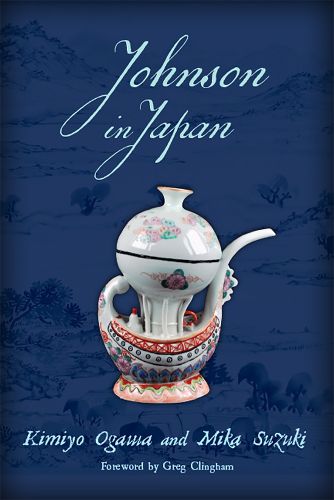Readings Newsletter
Become a Readings Member to make your shopping experience even easier.
Sign in or sign up for free!
You’re not far away from qualifying for FREE standard shipping within Australia
You’ve qualified for FREE standard shipping within Australia
The cart is loading…






The study and reception of Samuel Johnson’s work has long been embedded in Japanese literary culture. The essays in this collection reflect that history and influence, underscoring the richness of Johnson scholarship in Japan, while exploring broader conditions in Japanese academia today. In examining Johnson’s works such as the Rambler (1750-52), Rasselas (1759), Lives of the Most Eminent English Poets (1779-81), andJourney to the Western Islands of Scotland (1775), the contributors - all members of the half-century-old Johnson Society of Japan - also engage with the work of other important English writers, namely Shakespeare, Mary Shelley, Jane Austen, and Matthew Arnold, and later Japanese writers, including Natsume Soseki (1867-1916). If the state of Johnson studies in Japan is unfamiliar to Western academics, this volume offers a unique opportunity to appreciate Johnson’s centrality to Japanese education and intellectual life, and to reassess how he may be perceived in a different cultural context.
$9.00 standard shipping within Australia
FREE standard shipping within Australia for orders over $100.00
Express & International shipping calculated at checkout
The study and reception of Samuel Johnson’s work has long been embedded in Japanese literary culture. The essays in this collection reflect that history and influence, underscoring the richness of Johnson scholarship in Japan, while exploring broader conditions in Japanese academia today. In examining Johnson’s works such as the Rambler (1750-52), Rasselas (1759), Lives of the Most Eminent English Poets (1779-81), andJourney to the Western Islands of Scotland (1775), the contributors - all members of the half-century-old Johnson Society of Japan - also engage with the work of other important English writers, namely Shakespeare, Mary Shelley, Jane Austen, and Matthew Arnold, and later Japanese writers, including Natsume Soseki (1867-1916). If the state of Johnson studies in Japan is unfamiliar to Western academics, this volume offers a unique opportunity to appreciate Johnson’s centrality to Japanese education and intellectual life, and to reassess how he may be perceived in a different cultural context.